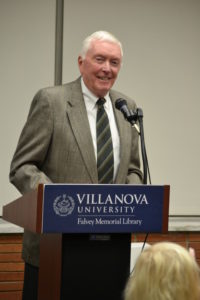
This may also be true of many Irish American readers — I’m bedeviled these days with helping grandchildren write college admission essays. I do my best, but my heart isn’t really into it. I check the grammar and the spelling, but the rest is lost to me. I love them all, but these essays are strange to me. The kids seem to think that since I was a college professor I must have some insight or influence on this whole process they are negotiating, but I really know nothing about this new world of college admissions.
I have no memory of doing such an essay. For me, “college” was a distant thing and the College Board Exam was basically the only challenge of the process, there were no personal essays. I was born in 1940, a first-generation Irish-American, none of us sure about all this college stuff.
Mom, from Ballyhaunis, County Mayo, left secondary school at age sixteen to come to America. Dad only did primary school in Cloone, Co. Leitrim, before he set sail at age 20. I was the oldest of three, the only boy, anointed to be the one who would move us all on in this new world.
In St. Jerome’s school in Flatbush, most of the boys were interested in being cops and firemen, with the good pensions our parents didn’t have. Girls, like my two sisters, were in “commercial” programs in high school, taking courses in Shorthand, Typing, and Home Economics. Luckily, I qualified to be in a scholarship school, St. Augustine’s in Park Slope, which meant an “academic” program run by the Christian Brothers, “academic” meaning the Great Books, Latin, French, and all the rest. Far removed from my sisters and many of my pals.
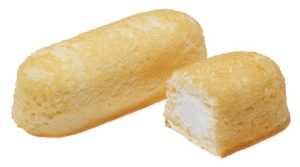
My Dad worked for Continental Baking Company delivering Hostess Cakes and Wonder Bread as a “salesman,” a term he insisted on after I had listed his occupation as “driver” on a college application. It had clearly hurt his feelings that I didn’t realize he was a “salesman.” He wanted more for me and was eager for me to go to college on a Teamsters scholarship.
I was always a good student, and Dad’s Teamster’s union had a scholarship for children of Continental Baking employees. We looked into it – a four-year scholarship to Florida State University. My eyes lit up, picturing bikinis everywhere, no more “BIC” girls (Brooklyn Irish Catholics), but the catch was that I would have to major in something called “Baking Management” and commit to working for Continental Baking after graduation. That was a no-go for me, I imagined courses in designing new Twinkies!
Dad was disappointed, saying, “Jimmy, you could be up in the office at a desk, be a boss, make good money.” But to me, it sounded like the CUPCAKE ROTC, and I looked into night college, not sure at all about the future. Thankfully, Dad understood. “You’re mad for the reading, so you wouldn’t be that good anyway at directing cupcake trucks. Give your reading a try. Teaching is a good job, decent pension, and no one shooting at you anyway. Go your own way. ”
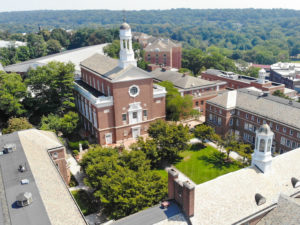
He was right. I was mad about reading and wanted to go to college. At the end of my senior year in high school, out of the blue came a partial scholarship to Manhattan College. I hadn’t even applied, it just appeared because my high school principal managed to get me a $400 scholarship. This was 1958, tuition at Manhattan College was $800, so now we can manage it, and off I’ll go to college – on the IRT 7th Avenue/Flatbush line. A far cry from all the bikinis at Florida State, but more exciting and scary at the same time.
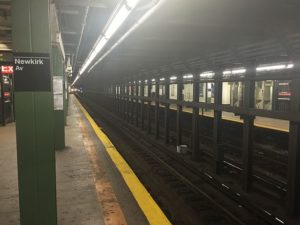
My home subway station is Newkirk Avenue, the second stop for the Manhattan-bound subway, my goal is 242nd St, the last stop on the line, a journey of at least an hour and a half. I’ll do this journey for four years and gradually find the subway to be my own classroom. I don’t have a clue about dorms and all their attractive mysteries, so I do have some sense of the adventures to be had there, but it’s not in my cards. It’ll be the subway for me, a day-hopper.
I’m hungry for books and the subway becomes my private classroom. I hug my books, no such thing as a backpack at that time. In the early morning, the subway is already packed when it comes to Newkirk Ave, so I know to wait my time when the Wall Street crowd will get off and there will be seats for all the students and others going for less exotic jobs around Manhattan.
After Wall Street is the best time on the subway. I’m surrounded by students going to Columbia University (116th St) and CCNY (137th St), all of them a bit intimidating. I’m conscious that Manhattan College doesn’t have the cache of those schools, it’s still over a hundred streets away uptown, as far as the subway line will go, the end of the line, so I make sure to let them all see that I’m reading Plato, Dante, Shakespeare. I’ll surprise them when I don’t get off with them. Maybe they’ll wonder – who is that guy, where is he going with his Plato?
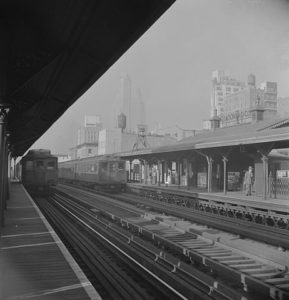
Always, I wonder how Dante would deal with the subway, what stations might he assign to his sinners, would he see that at 196th St., we rise into the open air as the subway transforms into an Elevated Line floating along above the passing rooftops of Upper Manhattan. What might Plato with his cave make of this subway, is this where knowledge begins? Is the Ghost of Hamlet’s father about to get on at the next station?
By Junior year, I hardly even notice the Columbia and CCNY students, they no longer bother me, I’ll let them stew for a while in my personal Purgatorio. Now I’m absorbed with Irish writers. I have found James Joyce, feeling at one with Stephen Dedalus, I hear Yeats whispering in my ear about “lake water lapping with low sounds by the shore,” even though there are no lakes in my real world.
When we finally arrive at 242nd St, I’m at peace, eager to argue about Plato or James Joyce or whatever. My classmates are just like me, mostly first-generation kids in this new world of ideas, all of us hungry for books, hearing our parents telling us that someday we can all be working in an office at a desk. Someday, we can be bosses. “Eat those books,” my Dad said.
Eat them I did, especially on my campus — the subway!

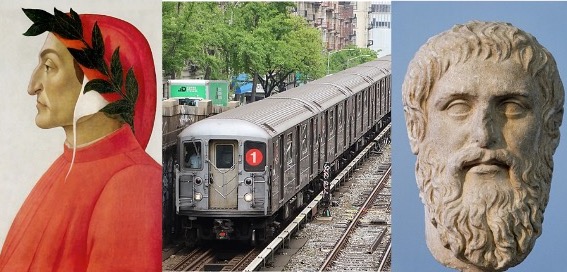
Leave a Reply